THE PEOPLE BEHIND BILNA'ES
DISCUSS
NEGATION, REFUSAL, AND RETURN
WITH A MUSICAL PERFORMANCE BY
HAYKAL AND ACAMOL
SOLD OUT
DISCUSS
NEGATION, REFUSAL, AND RETURN
WITH A MUSICAL PERFORMANCE BY
HAYKAL AND ACAMOL
SOLD OUT
Thursday,
February 13, 2025
6:30pm
Doors open
7:00pm
Event begins
with:
Basel Abbas
Ruanne Abou-Rahme
Laura al-Tibi
Amr Amer
Haitham Haddad
Adam HajYahia
Amany Khalifa
Limited capacity
February 13, 2025
6:30pm
Doors open
7:00pm
Event begins
with:
Basel Abbas
Ruanne Abou-Rahme
Laura al-Tibi
Amr Amer
Haitham Haddad
Adam HajYahia
Amany Khalifa
Limited capacity
This is a roundtable conversation about colonial negation, the politics of refusal, and the inevitability of return in Palestine.
All those who resist,
all those we are indebted to,
before and after us,
call to us
about becoming the negative
(Basel Abbas & Ruanne Abou-Rahme)
"The negative is a space-time of novelty and possibility that they insist on inhabiting, an experience akin to 'breathing where you should not be able to breath.'"
(Adam HajYahia & Haitham Haddad)
"Palestinians are simultaneously declared nonexistent and yet prohibited from existing. But how can one forbid what supposedly does not exist?"
(Laura al-Tibi & Amr Amer)
"To say [return] is unpredictable is not to say that it lacks certainty. On the contrary, we are certain of return even though it defies the logic of power."
(Alia Al-Sabi & Amany Khalifa)
All those who resist,
all those we are indebted to,
before and after us,
call to us
about becoming the negative
(Basel Abbas & Ruanne Abou-Rahme)
"The negative is a space-time of novelty and possibility that they insist on inhabiting, an experience akin to 'breathing where you should not be able to breath.'"
(Adam HajYahia & Haitham Haddad)
"Palestinians are simultaneously declared nonexistent and yet prohibited from existing. But how can one forbid what supposedly does not exist?"
(Laura al-Tibi & Amr Amer)
"To say [return] is unpredictable is not to say that it lacks certainty. On the contrary, we are certain of return even though it defies the logic of power."
(Alia Al-Sabi & Amany Khalifa)
These excerpts come from four small, perfect-bound books collectively titled To all those we are indebted to. Authored in paired collaborations and printed bilingually in English and Arabic, the series brings together poetry, critical writing, image-making, drawing, and song. They are released by Bilna'es (translation: "In the negative"), an adisciplinary publishing platform and record label with the aim of supporting artistic communities in Palestine and beyond.
The authors gather for a group discussion, followed by a live musical performance by Haykal (Amr Amer) as emcee with Acamol (Basel Abbas) playing beats.
Organized with Eli Coplan.
The authors gather for a group discussion, followed by a live musical performance by Haykal (Amr Amer) as emcee with Acamol (Basel Abbas) playing beats.
Organized with Eli Coplan.
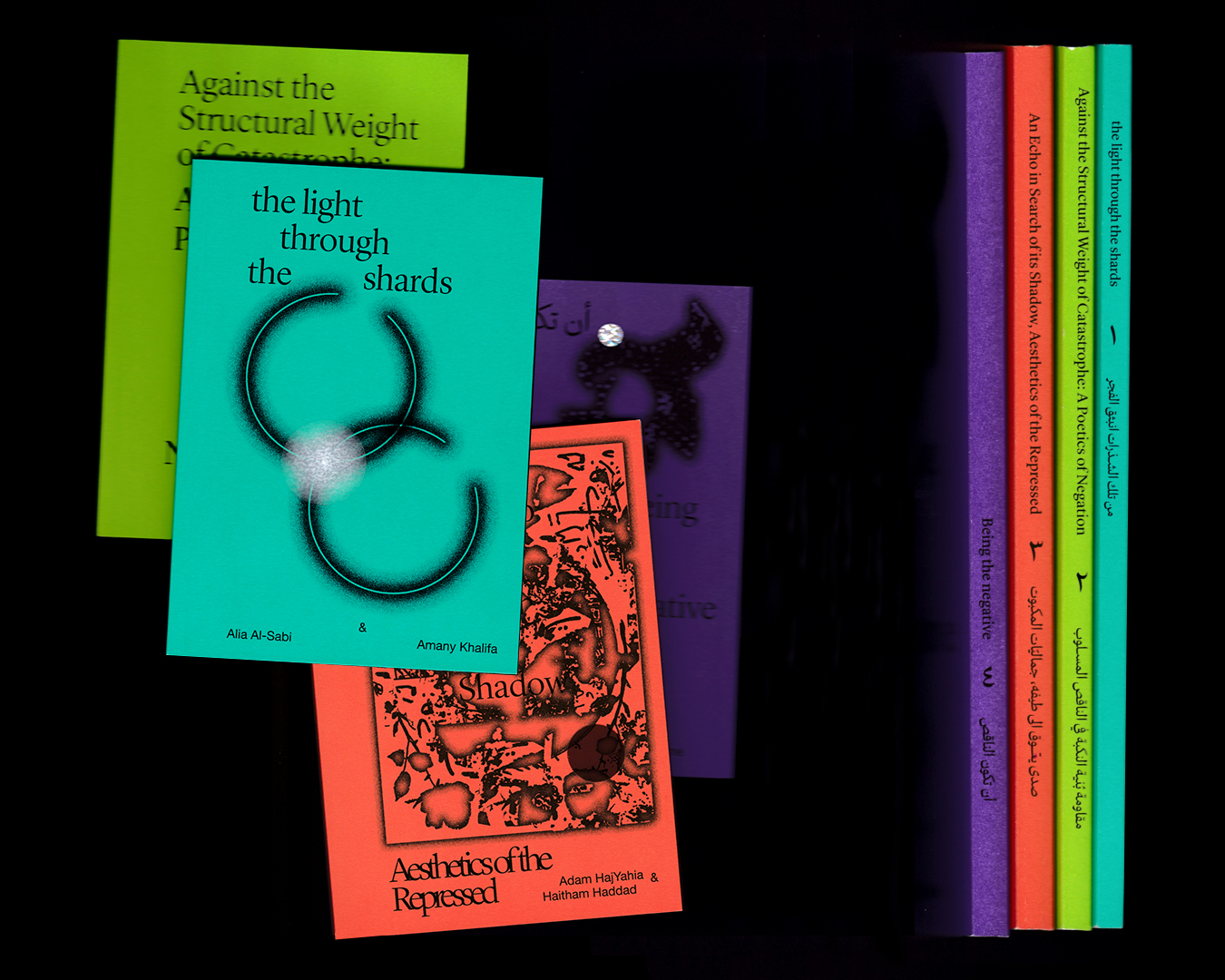
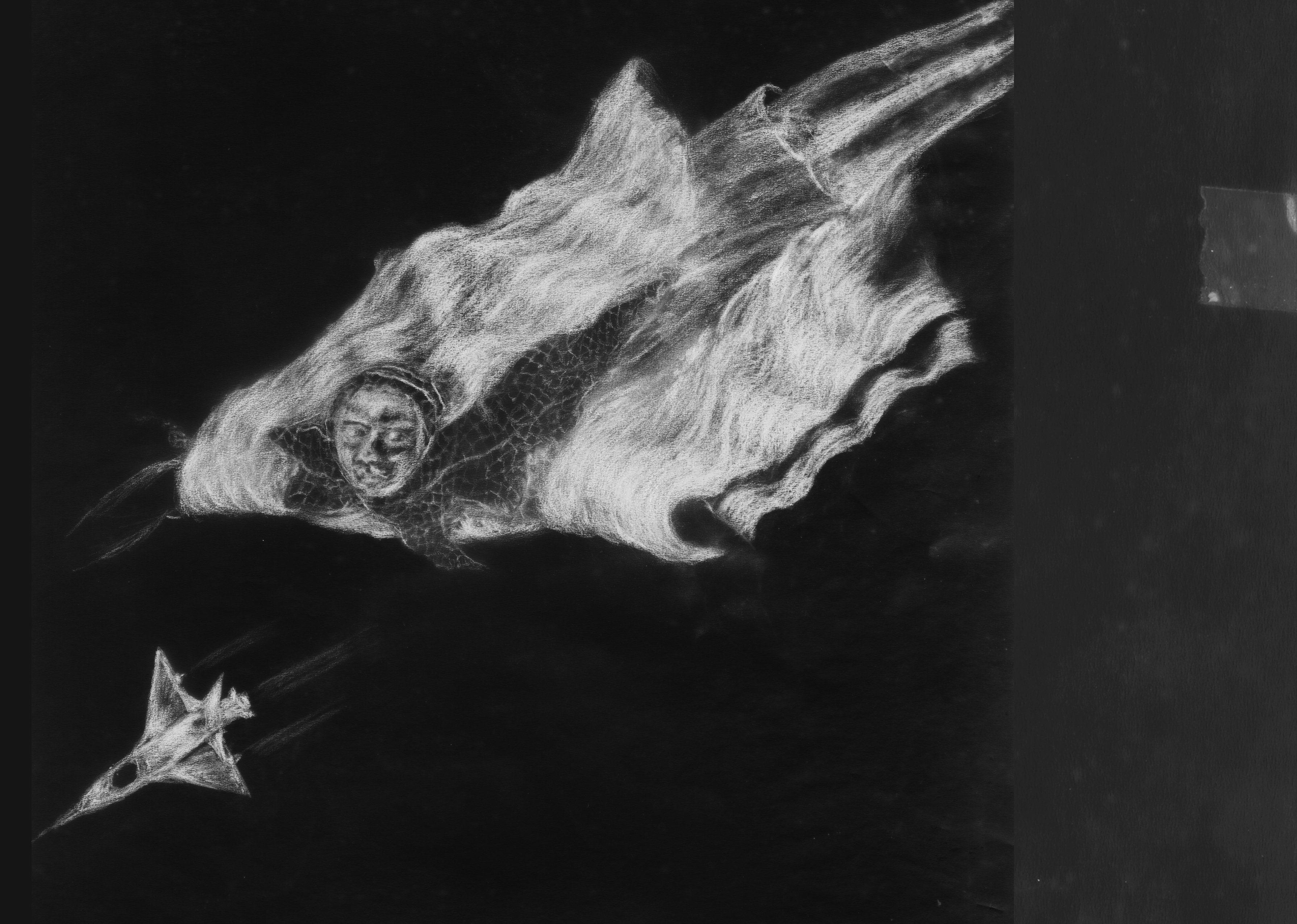
Drawing by Tawfik Abou-Rahme
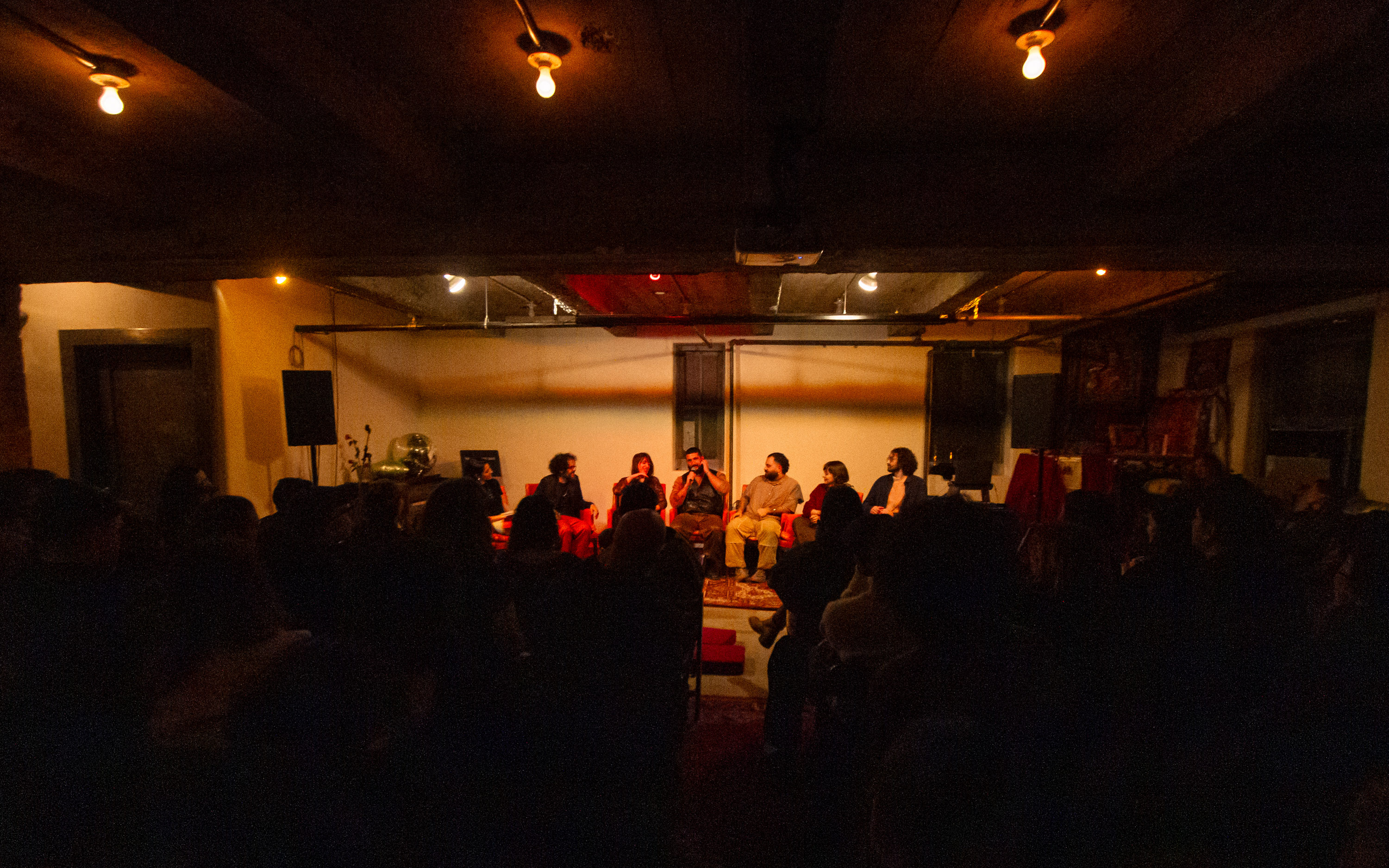
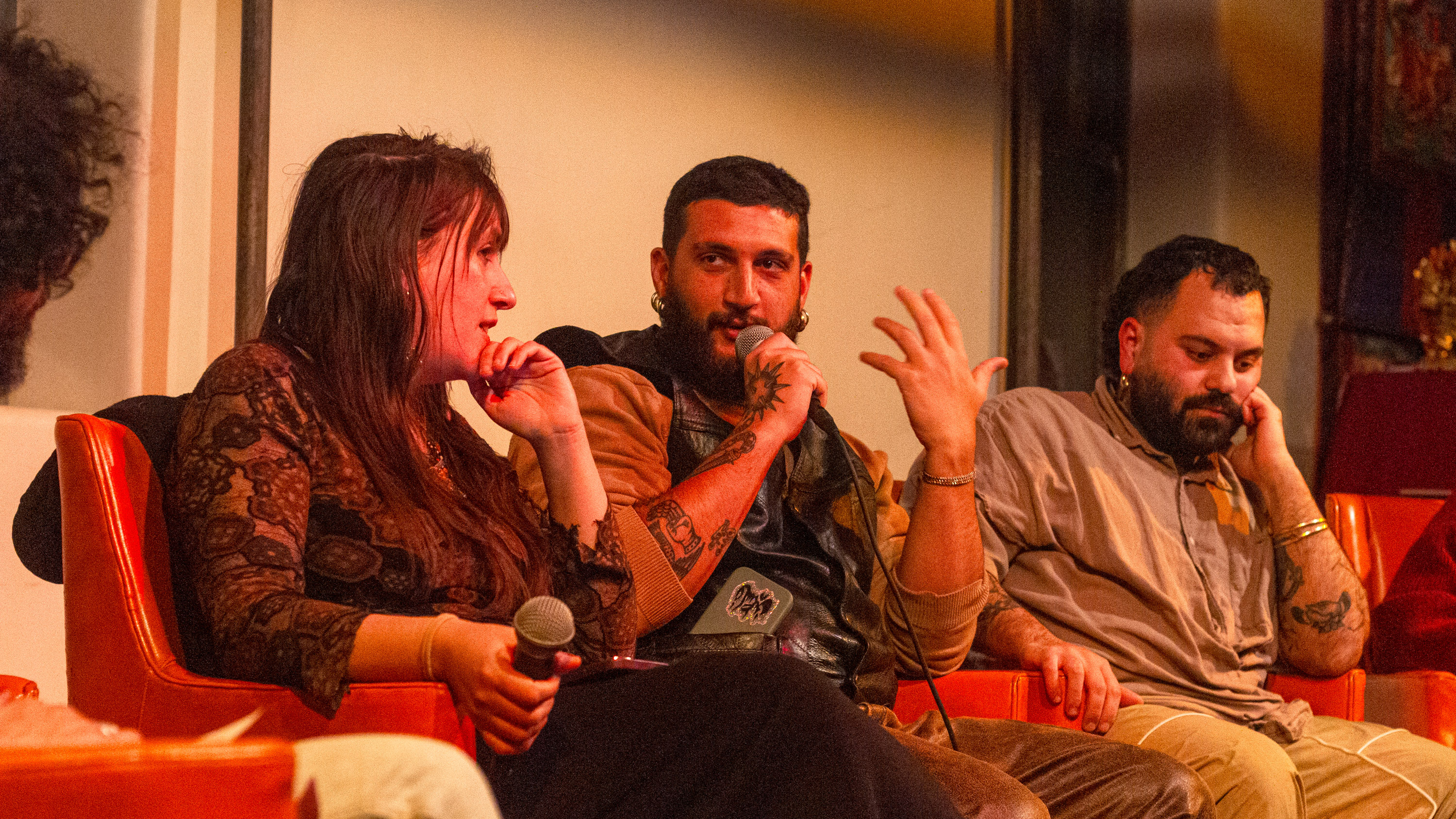
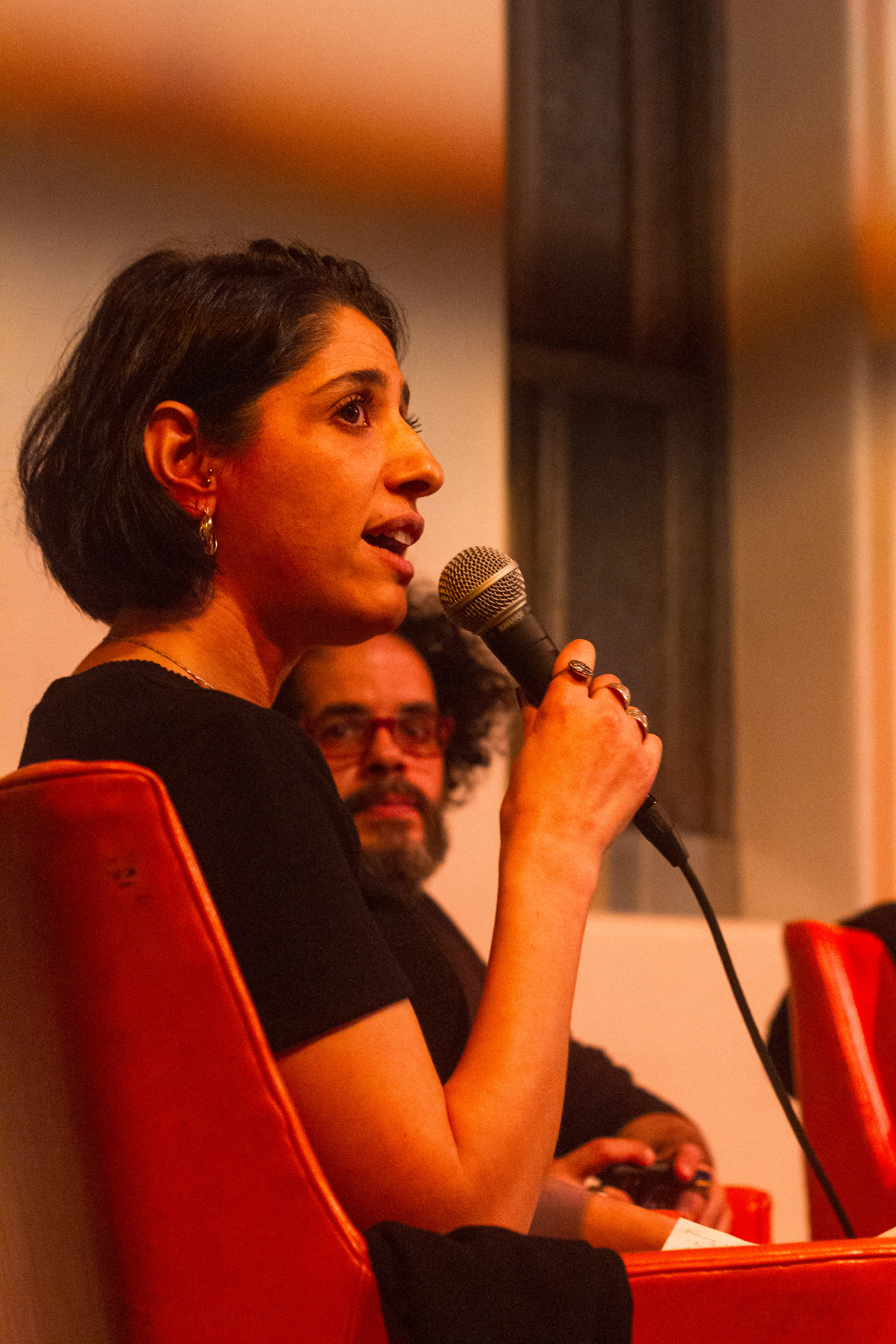
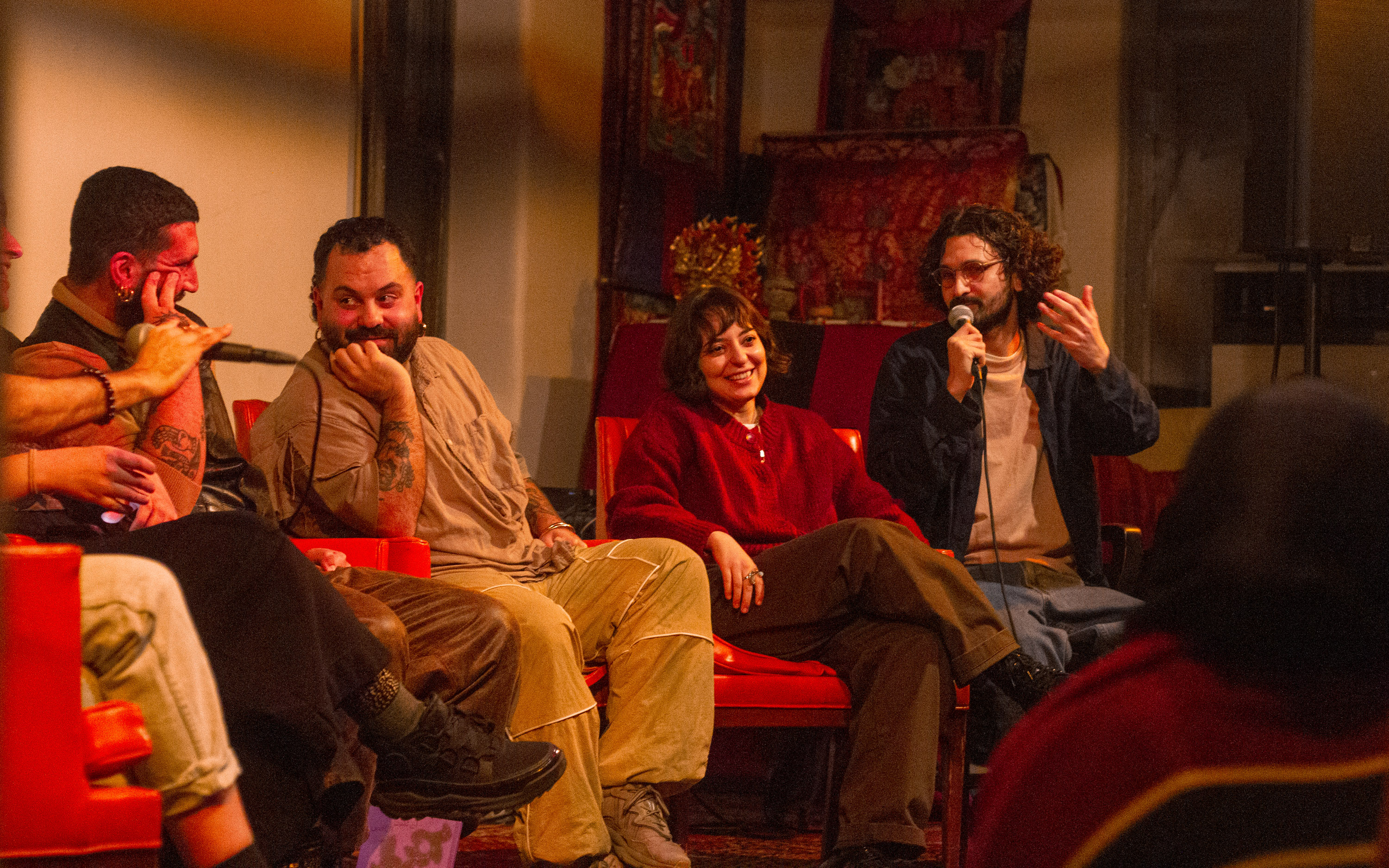
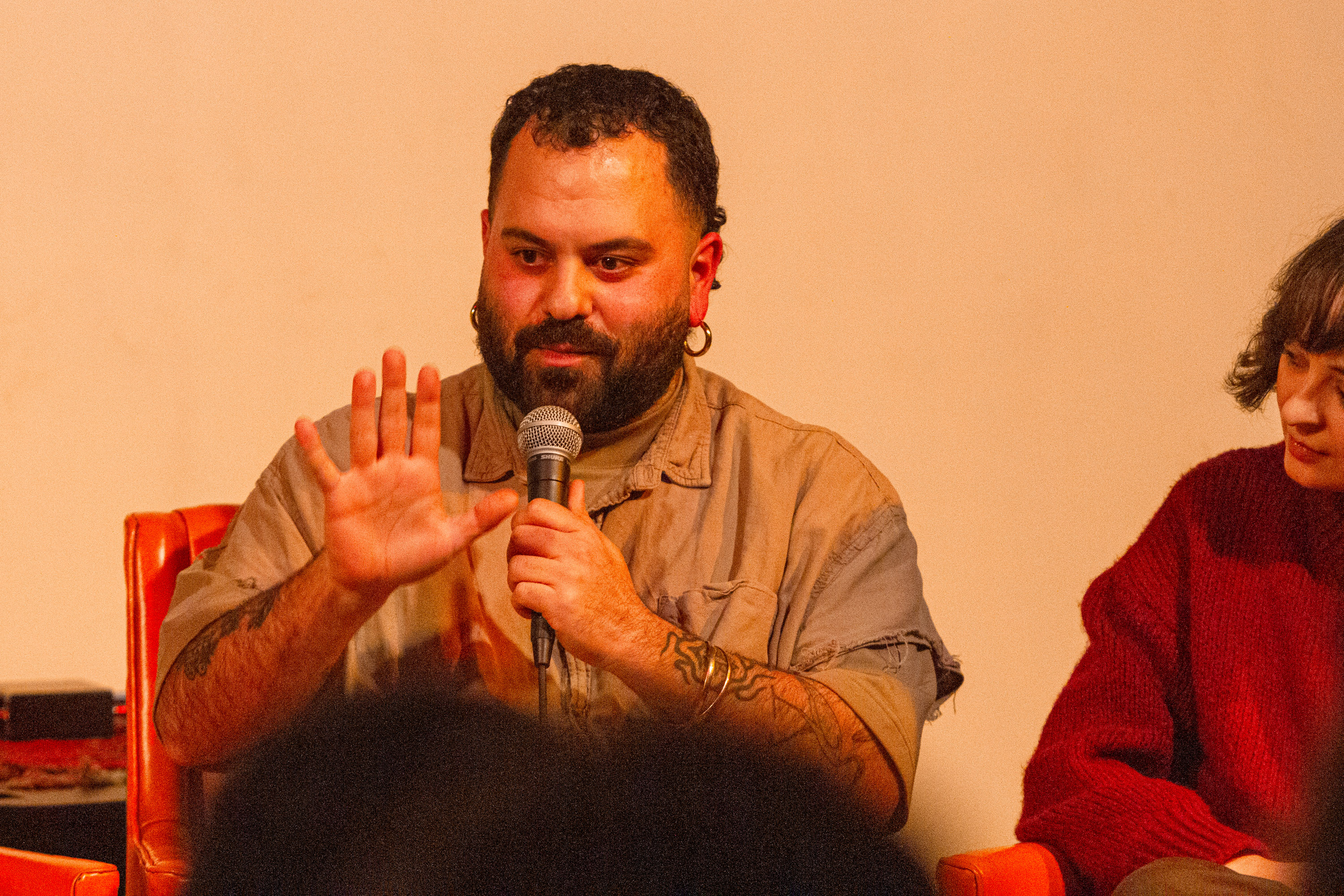
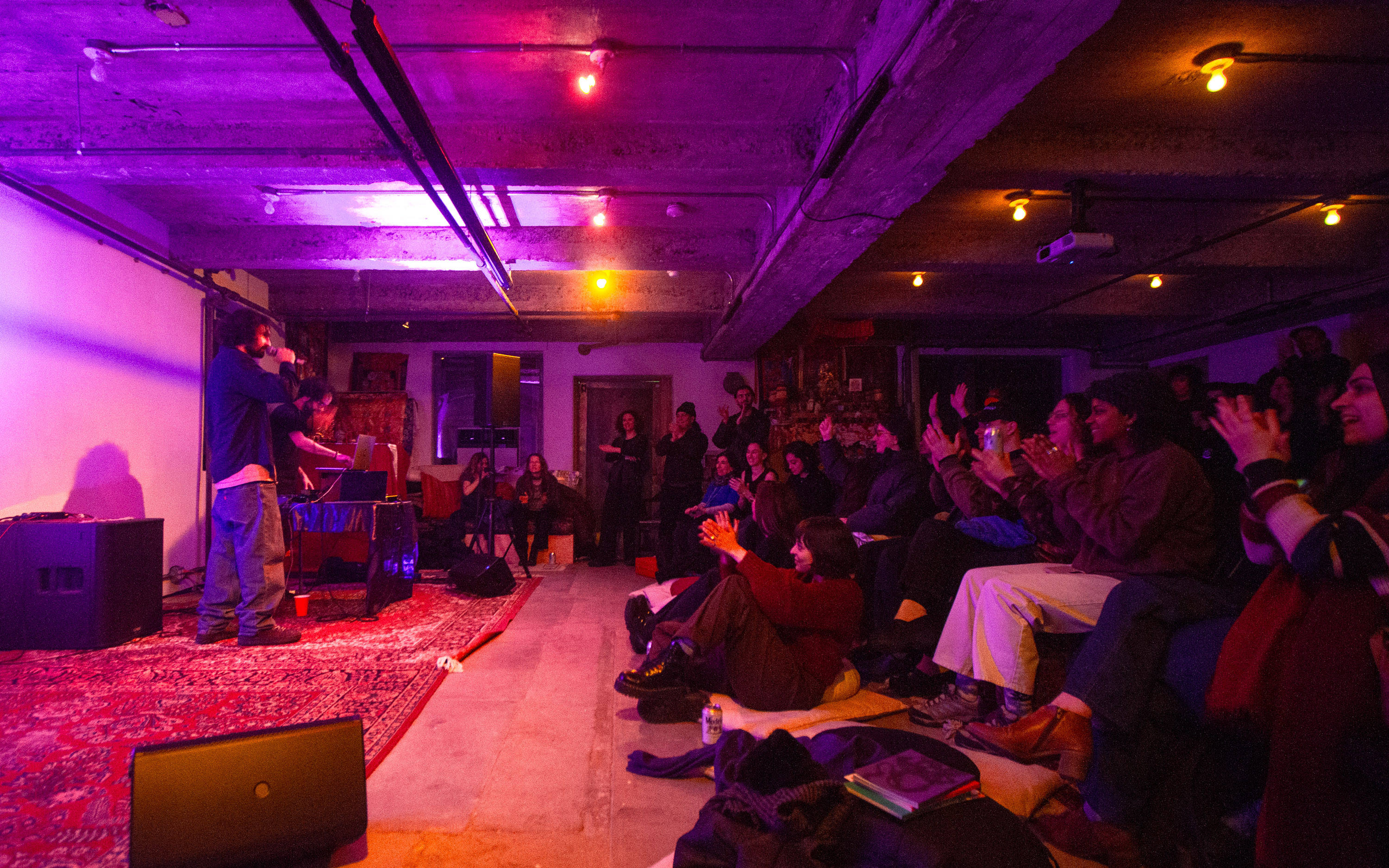

Photos by aj medeiros
Basel Abbas & Ruanne Abou-Rahme are an artist duo developing a body of work that questions the suspension of the present and searches for ways in which an altogether different imaginary and language can emerge that is not bound within colonial/capitalist narrative and discourse. In their projects, they find themselves excavating, activating, and inventing incidental narratives, figures, gestures, and sites as material for re-imagining the possibilities of the present.
Alia Al-Sabi is a writer and researcher based in Brooklyn, New York. She is currently a PhD Candidate in the Performance Studies department at NYU, where she is researching prison literatures in various archives in Palestine. Her research focus considers theories of movement and subversion within logics of surveillance and confinement by examining the textual practices produced within carceral structures.
Laura al-Tibi is a Palestinian writer and PhD student at Columbia University, specializing in the visual and literary histories of Palestine. Her research delves into the social and political dynamics of Palestinian photography before 1948, along with its aftermath of material devastation and historical erasure.
Amr Amer is a Palestinian musician who has been releasing music under the alias "Haykal" since 2012. His writing navigates between political and cultural themes, intertwined with personal reflections. At times, he strips away lyrics entirely, letting the rhythm and beats take center stage. He has collaborated with various artists across Palestine and the Arab world, including Makimakkuk, Muqata’a, Julmud, and El Rass. To date, he has released four EPs and is currently working on his first full-length album.
Alia Al-Sabi is a writer and researcher based in Brooklyn, New York. She is currently a PhD Candidate in the Performance Studies department at NYU, where she is researching prison literatures in various archives in Palestine. Her research focus considers theories of movement and subversion within logics of surveillance and confinement by examining the textual practices produced within carceral structures.
Laura al-Tibi is a Palestinian writer and PhD student at Columbia University, specializing in the visual and literary histories of Palestine. Her research delves into the social and political dynamics of Palestinian photography before 1948, along with its aftermath of material devastation and historical erasure.
Amr Amer is a Palestinian musician who has been releasing music under the alias "Haykal" since 2012. His writing navigates between political and cultural themes, intertwined with personal reflections. At times, he strips away lyrics entirely, letting the rhythm and beats take center stage. He has collaborated with various artists across Palestine and the Arab world, including Makimakkuk, Muqata’a, Julmud, and El Rass. To date, he has released four EPs and is currently working on his first full-length album.
Amany Khalifa is a doctoral student in the Department of Anthropology at Columbia University. Amany is interested in studying social movements as sites of Refusal in Occupied Palestine. Her research explores how political collectivity reconfigures the present and aspires to reshape the future.
Adam HajYahia is invested in the relationships between aesthetics and politics; capitalism and desire; negative speculation and contemporary art. Through his work as a writer and curator, he examines how practices of image-making, performance, poetry, and sound reflect on and affect revolutions to erupt, be suspended, and/or terminate. He is interested in how psychic desire is at once captured and unbound by capital and the aesthetic practices that tirelessly attempt to forge a way out.
Haitham Haddad is a visual artist and graphic designer whose work centers on historical and contemporary manifestations of myth and folklore, as well as political tensions between the individual and the collective. He works at the intersection of printmaking, illustration, video, and tattooing, with an ongoing investment to revisit past histories and test how they can reshape the present.
Bilna’es is an adisciplinary platform that seeks to find new models for artists to redistribute resources and support one another in the production and circulation of work. It functions as a publishing space with releases ranging from music to video games, web projects, publications, performances, installations, and other yet-to-be-developed forms.
Adam HajYahia is invested in the relationships between aesthetics and politics; capitalism and desire; negative speculation and contemporary art. Through his work as a writer and curator, he examines how practices of image-making, performance, poetry, and sound reflect on and affect revolutions to erupt, be suspended, and/or terminate. He is interested in how psychic desire is at once captured and unbound by capital and the aesthetic practices that tirelessly attempt to forge a way out.
Haitham Haddad is a visual artist and graphic designer whose work centers on historical and contemporary manifestations of myth and folklore, as well as political tensions between the individual and the collective. He works at the intersection of printmaking, illustration, video, and tattooing, with an ongoing investment to revisit past histories and test how they can reshape the present.
Bilna’es is an adisciplinary platform that seeks to find new models for artists to redistribute resources and support one another in the production and circulation of work. It functions as a publishing space with releases ranging from music to video games, web projects, publications, performances, installations, and other yet-to-be-developed forms.
Due to the age and character of the building, the space is not optimized for ADA accessibility and is located up a single flight of 20 stairs with handrails. If you have questions about access, please contact us in advance of the event, and we will make every effort to accommodate you.

